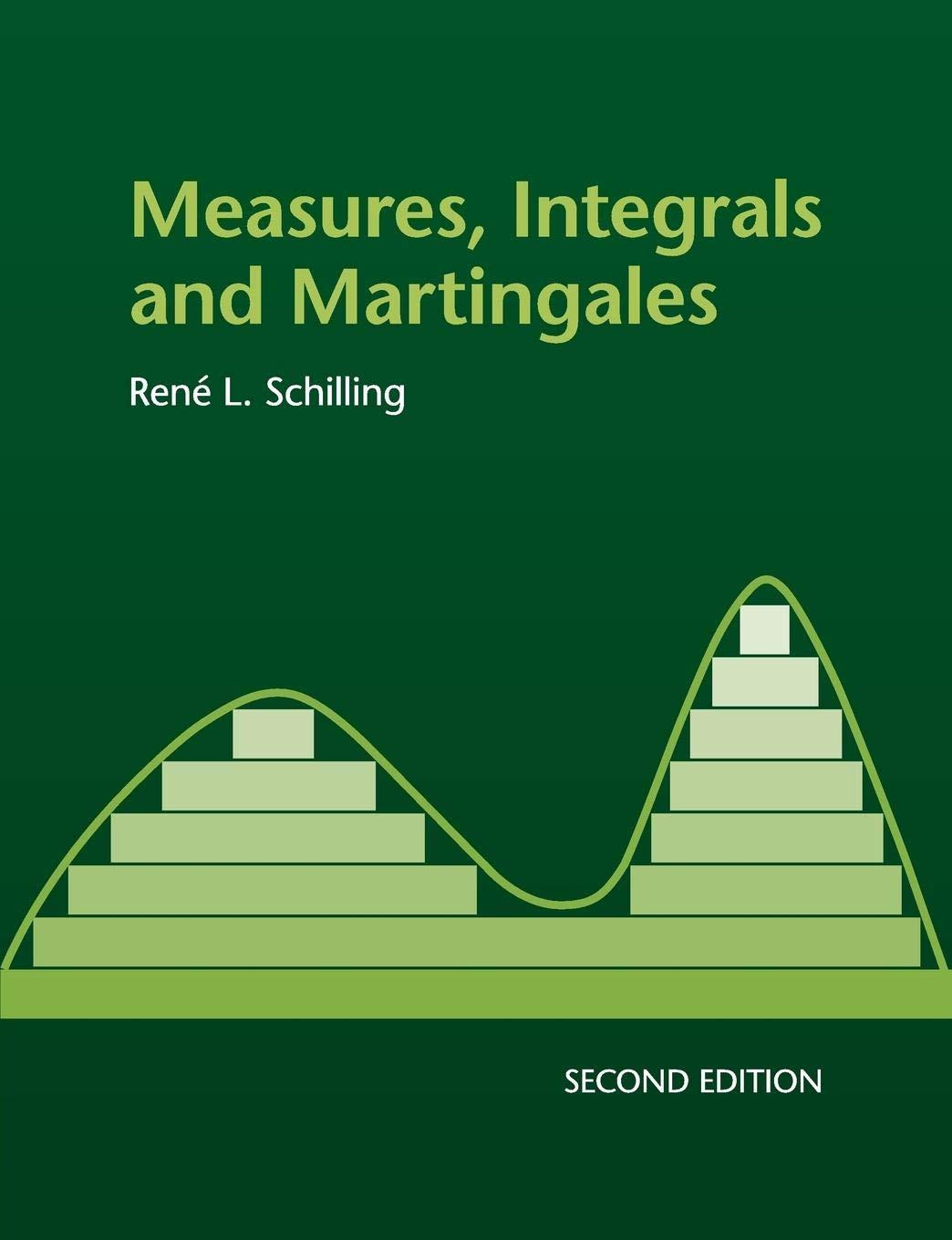Consider the measure space ((mathbb{R}, mathscr{B}(mathbb{R}))) and denote by (zeta_{M}: mathscr{B}(mathbb{R}) ightarrow[0, infty], M subset mathbb{R}), (zeta_{M}(A):=#(A
Question:
Consider the measure space \((\mathbb{R}, \mathscr{B}(\mathbb{R}))\) and denote by \(\zeta_{M}: \mathscr{B}(\mathbb{R}) ightarrow[0, \infty], M \subset \mathbb{R}\), \(\zeta_{M}(A):=\#(A \cap M)\) the counting measure.
(i) Show that Lebesgue's measure \(\lambda\) and the counting measure \(\zeta_{\mathbb{Q}}\) are \(\sigma\)-finite, the counting measure \(\zeta_{\mathbb{R}}\) is not \(\sigma\)-finite.
(ii) Show that \(\int_{(0,1)} \int_{(0,1)} \mathbb{1}_{\mathbb{Q}}(x \cdot y) d \lambda(x) d \zeta_{\mathbb{R}}(y)=0\).
(iii) Show that \(\int_{(0,1)} \int_{(0,1)} \mathbb{1}_{\mathbb{Q}}(x \cdot y) d \zeta_{\mathbb{R}}(y) d \lambda(x)=\infty\).
(iv) Show that \(\int_{(0,1)} \int_{(0,1)} \mathbb{1}_{\mathbb{Q}}(x \cdot y) d \zeta_{\mathbb{Q}}(y) d \lambda(x)=0\).
(v) Do (ii) and (iii) contradict Fubini's theorem?
Step by Step Answer:






